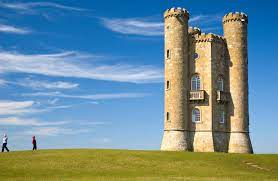1. Wish for a present or past that isn't real
This use of wish is for present or past situations that we want to change, but we understand that they can't.
I wish I were taller. (I am not tall)
I wish I had eaten ice-cream for breakfast this morning. (I didn’t eat ice cream for breakfast this morning)
I wish I were taller is an example of a present wish. It is ‘wish’ plus the past simple. We often use ‘were’ instead of ‘was’ for all pronouns because of the subjunctive (For example: I wish I were, I wish you were, I wish he were...). I could also say:
I wish I knew how to speak Chinese. (I don’t know how to speak Chinese.)
I wish I had eaten ice-cream for breakfast this morning is an example of a past wish. This morning is a past time; we make a past wish. ‘Wish’ is followed by the past perfect, which is had plus the past participle. That indicates true past time.
Negatives and questions are also possible:
I wish you weren't so selfish.
I wish I hadn't left my keys at work.
Do you wish you knew how to drive?
Do you wish you had worked harder at school?
2. Wish for an irritation that can change
Another common form of wish is to use ‘wish’ plus would plus the bare infinitive (verb without 'to'). And this is often in regards to other people and our irritation. For example:
I wish you would make the bed!
I wish people wouldn't throw litter on the street.
This is a present wish, but unlike the wishes I discussed before, this wish means ‘I believe you can change and something can be done.’ Compare:
I wish you would make the bed means ‘I think you can, but you don't, so please do.'
I wish you made the bed means ‘you don't and I don’t think you ever will so…’
It is extremely uncommon to use a first person ‘I’ in this form of wish. This is because we have control over our own actions ourselves, so:
I wish I would stop talking means 'I want to stop talking, and I believe I can so why don’t I?’
However, in terms of an illness or an addiction, this form is fine. When I say 'I wish I would stop smoking' it means 'I don’t want to smoke anymore, but I can’t stop because I’m addicted.'
3. Wish = want
Wish followed by the full infinitive (to + verb) is a formal way of saying want. It’s not very common, and only used in special circumstances, for example, when you want to make a polite formal complaint. For example: I wish to see the manager.
We can also use wish followed by ‘for’ to attach an object that you want. And this is most often used in the circumstances of magic. For example: I wish for a pizza.
4. Wish to send ‘good vibrations’
We can use the verb wish followed by two objects, the first of which is most often a pronoun, to send ‘good vibrations’ to somebody. This is more common than hope and it is used in fixed phrases such as:
I wish you luck for your exam tomorrow.
We wish you a merry Christmas.
5. Wish for the future
This is a trick, because apart from sending good vibrations, as mentioned before, we cannot use the verb wish in this way. We need another verb, and the verb is hope. And this is usually followed by will plus the bare infinitive (verb without 'to'). So, for example:
I hope you will pass your exam.


No comments:
Post a Comment